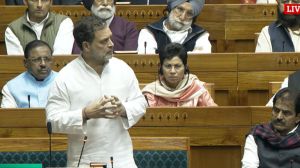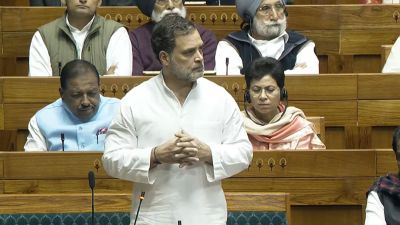No increments, promotions — Delhi University’s ad hoc faculty struggled for years. HC order now brings some hope
In the past two years, Delhi University has filled around 3,500 permanent teaching positions, with approximately 3,000 of those coming from the ad hoc pool.
 In October 2023, the Delhi University put out a notification stating that ad hoc appointments would be discontinued,(File)
In October 2023, the Delhi University put out a notification stating that ad hoc appointments would be discontinued,(File)No increment. No promotion. No medical security.
For several ad hoc teachers at Delhi University (DU), these aren’t temporary inconveniences, but work conditions that have lasted for decades.
But a recent Delhi High Court order has opened a narrow window of hope.
On July 11, the HC, while hearing a plea by two ad hoc assistant professors — Namita Khare and Mehak Talwar, from DU’s Department of Germanic and Romance Studies — came down strongly on the university for “consciously using ad-hoc appointments as a substitute for regular employment”.
Typically, ad hoc faculty at DU are hired on four-month contracts, renewed repeatedly with brief “breaks” to avoid legal obligations. Many have taught full-time for over a decade, often in the same colleges, without being considered for a permanent post. This, despite performing the same duties as regular faculty.
The Indian Express spoke to several current and former ad hoc teachers to understand what the court order means for them.
Vishal Pandey, an ad hoc assistant professor at Ramjas College, who’s been teaching Commerce for over 10 years, said the order gives some hope. “I don’t expect anything from the university, but I still have faith in the judiciary,” said the ad hoc teacher who studied at the Delhi School of Economics. He has seen no career progression, increments, or medical benefits.
He added that in 2023, he gave an interview for a permanent post —“nothing came of it”.
The selection procedure for permanent teachers in DU departments started on April 1, 2022. Until April 2023, as reported by The Indian Express earlier, about 2,000 teachers have been appointed permanently in colleges. There were about 4,500-5,000 posts available in colleges.
The teaching community alleged that around 2,000 ad hoc teachers have been displaced over the past two years.
One teacher, who had worked at a government-funded DU college for four years before being displaced in 2024, now works as guest faculty elsewhere. “I’m still giving interviews,” he said. “There are positions. But the criteria for selection are unclear.”
The rise in ad hoc appointments over the past decade can be traced to two key developments.
Between 2008 and 2013, an estimated 1,500 teachers retired from DU, opening up a wave of vacancies. Around the same time, following the implementation of Other Backward Classes (OBC) reservations, the central government had sanctioned additional teaching posts for universities. DU was allocated over 2,600 such posts. While about 1,300 were released in 2007, the recruitment process stagnated in the years that followed.
In 2019, the Delhi University Teachers’ Association (DUTA) demanded one-time absorption of all ad hocs. The University Grants Commission (UGC) and Education Ministry officials met the then Vice-Chancellor Yogesh Tyagi, leading to a temporary compromise: ad hocs would remain until permanent appointments were made, and shortlisting criteria would be tweaked in their favour.
By 2022, DU had over 4,200 ad hoc teachers, making up nearly 40% of its total faculty strength.
In October 2023, DU issued a notification pushing for the exclusive appointment of permanent faculty.
Vice-Chancellor Yogesh Singh had earlier told The Indian Express, “Over the past two years, about 3,500 permanent spots have been filled. Of these, 3,000 were filled by former ad hocs. All appointments were made strictly based on UGC guidelines.”
Another teacher, who was displaced, said, “What makes the case significant is that the court saw through DU’s long-standing justification for not regularising ad hocs that they were temporary hires.”







